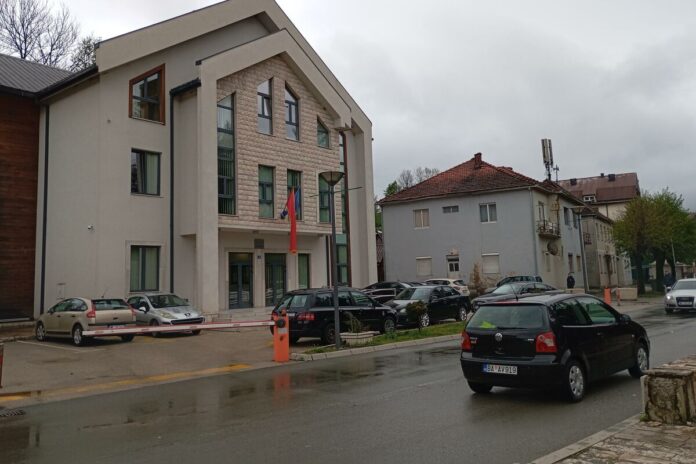Janketić Backs Milatović’s Initiative for the Rehabilitation of Golootočani
Image from Mojkovac, Photographer: Dragana Šćepanović
Marko Janketić, the President of the Mojkovac Municipal Assembly, has expressed his “complete support for the initiative put forth by the President of Montenegro, Jakov Milatović, regarding the enactment of the Law on the Rehabilitation and Compensation of Political Prisoners from Goli Otok, Sveti Grgur, and other detention facilities.”
He points out that a year prior, an initiative was proposed and subsequently approved by the Ministry of Culture and Media to rename a street in Mojkovac in honor of the Victims of Goli Otok.
“This serves as a symbolic effort to address the injustices suffered by the prisoners of Goli Otok, individuals who sought a better and fairer society, along with their families who endured persecution by the then Titoist regime. During the second session of the Cominform, the successor to the Comintern, a resolution was adopted condemning the leadership of the Communist Party of Yugoslavia (KPJ) for straying from Marxism-Leninism, betraying the principles of internationalism, and promoting nationalism. Consequently, it was expelled from the alliance of global workers’ and communist parties. The 55,000 party members expelled from the KPJ included 12 participants of the October Revolution, 23 federal and republic ministers, two presidents, and two vice presidents of republican governments. Out of these, 16,101 faced unprecedented reprisals and were confined to camps across the Adriatic Sea: Goli Otok, Sveti Grgur, Ugljan, and other locations throughout Yugoslavia,” Janketić recalls.
He asserts that “Goli Otok housed the most infamous camp post-World War II, known for the repression enforced by the Yugoslav Titoist regime against thousands of individuals from all Yugoslav republics who were imprisoned on that island.” Janketić describes Goli Otok as “the only concentration camp in Europe following World War II.”
“Among those detained on Goli Otok were the finest and most courageous fighters of the National Liberation War, held without any legal justification. Mirko Krdžić, the president of the Supreme Military Court, was also imprisoned for refusing to prosecute informants due to the lack of legal basis. The conditions for prisoners were inhumane, involving the most severe forms of physical and psychological torture. From 1949 to 1956, among the 16,101 prisoners, 3,390 were from Montenegro – the highest number relative to the population of the Yugoslav republics. Among those endorsing the Informbiro resolution were 4,153 members of the Yugoslav Army, 1,673 recipients of the Partisan Memorial of 1941, and various leaders from the KPJ, including members of the Politburo and Central Committee,” Janketić argues.
According to the Mojkovac municipal council president, which at that time was part of the Kolašin and Bijelo Polje districts, records indicate that 239 individuals were imprisoned on Goli Otok, of whom eight lost their lives or were killed during their sentences.
“In the area of Bijelo Polje, which includes the Mojkovac municipality, 162 individuals were detained, with four dying or killed. Twelve members of the district committee were deceived into surrendering and were subsequently murdered in the Bijelo Polje region. No accountability has been established for these crimes. Families of informers were treated as second-class citizens, branded as traitors during the entire reign of the KPJ, which was later renamed the SKJ, enduring ongoing scrutiny,” Janketić’s statement elaborates.
He emphasizes that “Goli Otok serves as a pilgrimage site for the families of deceased informers, honoring the suffering endured by individuals and their families, proud to have had one, as the location where they can feel the Senj storm, the winds from Velebit, and the harsh stones of Goli Otok.” It is our responsibility, Janketić concludes, to illuminate this somber chapter of our history and to foster a society rooted in truth and justice rather than deception and neglect, dismissing this topic with false justifications like “it’s not the right time” or “barometer 26.” He reminds us that “Montenegro is the only country in the region that has yet to provide rehabilitation and just compensation to those affected by Goli Otok.”
News


